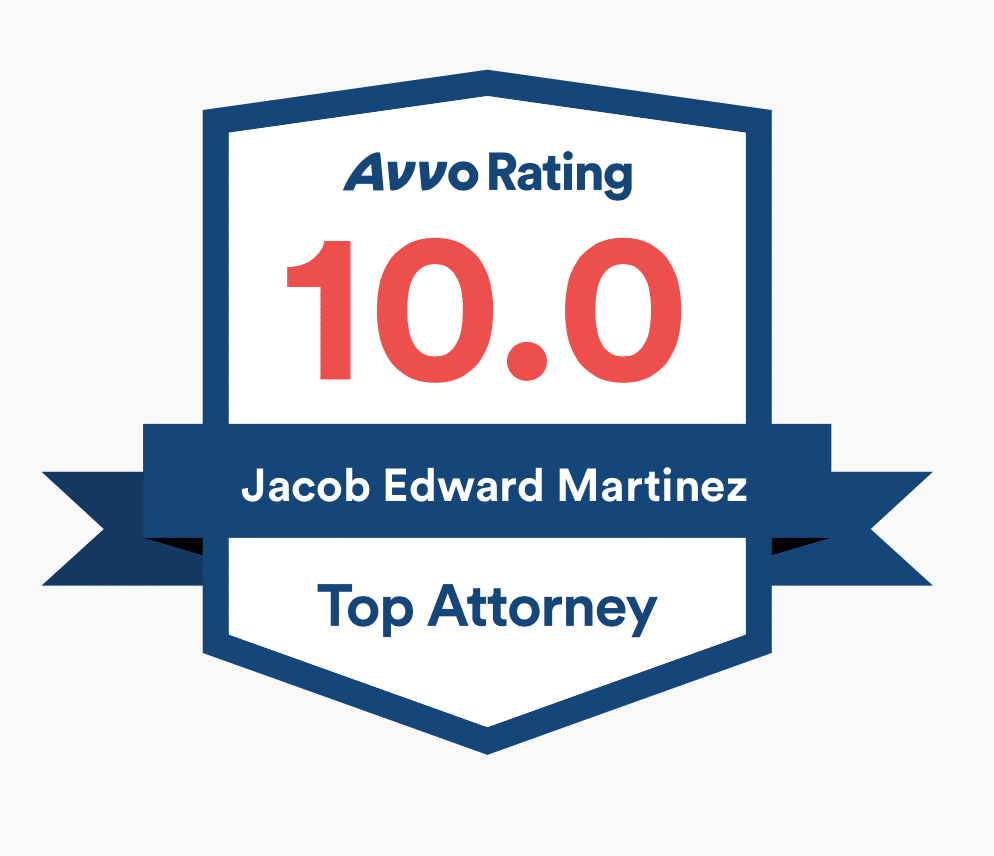Fight Your DUI Charge with an Award-Winning Denver Criminal Attorney
DUI. DWAI. DUID. Colorado has many ways you can be charged with driving under the influence. Law enforcement in our state is incredibly serious about keeping drunk and drugged drivers off the roads and severely punishing those who disobey the laws. The Colorado legislature has also demonstrated that it is severe in pushing to end drunk driving. In 2017, the legislature changed the laws regarding DUI and made them significantly tougher. This included adding Colorado’s Express Consent Law, mandatory jail to DUIs and enhanced DMV consequences due to a DUI charge. DUI is codified under C.R.S. 42-4-1301. It states as follows:
- (a) A person who drives a motor vehicle or vehicle under the influence of alcohol or one or more drugs, or a combination of both alcohol and one or more drugs, commits driving under the influence. Driving under the influence is a misdemeanor, but it is a class 4 felony if the violation occurred after three or more prior convictions arising out of separate and distinct criminal episodes for DUI, DUI per se, or DWAI; vehicular homicide, as described in section 18-3-106 (1)(b); vehicular assault, as described in section 18-3-205 (1)(b); or any combination thereof.
- (b)A person who drives a motor vehicle or vehicle while impaired by alcohol or by one or more drugs, or by a combination of alcohol and one or more drugs, commits driving while ability impaired. Driving while ability impaired is a misdemeanor, but it is a class 4 felony if the violation occurred after three or more prior convictions, arising out of separate and distinct criminal episodes, for DUI, DUI per se, or DWAI; vehicular homicide, as described in section 18-3-106 (1)(b); vehicular assault, as described in section 18-3-205 (1)(b); or any combination thereof. …
- (f) “Driving under the influence” means driving a motor vehicle or vehicle when a person has consumed alcohol or one or more drugs, or a combination of alcohol and one or more drugs, that affects the person to the degree that the person is substantially incapable, either mentally or physically, or both mentally and physically, to exercise clear judgment, sufficient physical control, or due care in the safe operation of a vehicle.
- (g) “Driving while ability impaired” means driving a motor vehicle or vehicle when a person has consumed alcohol or one or more drugs, or a combination of both alcohol and one or more drugs, that affects the person to the slightest degree so that the person is less able than the person ordinarily would have been, either mentally or physically, or both mentally and physically, to exercise clear judgment, sufficient physical control, or due care in the safe operation of a vehicle.
A recent study by WalletHub put Colorado in the top 20 states with the strictest DUI laws. That was before a felony DUI law went into effect in 2017 that included mandatory incarceration. Colorado is among the absolute strictest DUI laws in the United States. Even first-time offenders charged with non-aggravated DUIs will find themselves up against harsh consequences that include a term of probation with classes, monitored sobriety, a fine, and community service.
Colorado has mandated that, even on a first DUI, should your blood alcohol content be above .2, then ten days of incarceration become mandatory. Those ten days can be served as a jail, work release, or in-home detention. Often, district attorneys seek, and judges will impose, a greater period than ten days if an individual is to be given in-home detention. Further, the legislature has imposed escalating penalties for any subsequent DUI that a person receives. On a second DUI, ten days are mandatory without regard to the blood alcohol content. Worse still, if a person’s second DUI is within five years of their first DUI, then in-home detention is not an option*. On a third DUI, 60 days become mandatory, and in-home detention is removed as a possibility*. Any fourth or subsequent DUIs carries a mandatory 90 days*. Throughout the Denver Metro area, the typical incarceration length that an individual may receive for any given DUI will vary based on several factors. Those factors can include the person’s prior criminal history, driving record, how aggravated their driving was, whether they have any prior DUIs, if they have a prior DUI, how long ago the prior DUI was, and many more. That being said, it is extremely common for a second or subsequent DUI to result in a sentence longer than the mandatory minimum. The higher the blood alcohol content, the more likely a person on a second DUI will face work release or jail rather than in-home detention. On a third DUI, a person in the metro area will likely face a minimum of work release in a much longer range.
Felony DUIs begin with a person’s 4th DUI charge. Beyond the mandatory jail and anticipated consequences, a felony conviction has real and lasting consequences. A person convicted of a felony may not vote or possess a firearm. A person convicted of a felony is likely to have great difficulty obtaining employment or financing for things like student loans. They are also unlikely to be able to rent a house or apartment, as many renting companies refuse to rent to felons. It is essential to understand that a felony conviction is permanent and crippling to a person’s future. Then, the immediate consequences of a minimum of 90 days of jail with the possibility of prison also become relevant to the conversation. A person facing a 4th or subsequent DUI charge needs strong representation to advocate and fight for their rights.
Then there is the possibility of related charges, such as reckless endangerment, vehicular assault, and even vehicular homicide, which can drastically increase your penalties. In addition, if a person were to have a child in the vehicle during a DUI, that person would also be charged with Child Abuse for negligently placing the child at risk of injury. That could also result in an additional conviction and enhanced sentence.
In addition to the criminal consequences, there are a number of consequences that occur outside of the court system. The DMV will likely become involved in your case and could take away your license. If the DMV does take away your license, you will serve either 30 or 60 days of no driving whatsoever, depending on the circumstances of your case. Unfortunately, there is no restricted or red license that a person may apply for after their license was taken in the DUI context. Then, to get your license back, you would have to have a breathalyzer in your vehicle. You may have to enroll in Level II Alcohol Education and Therapy, intensive DUI classes. You must pay a $95 reinstatement fee and have SR-22 certification sent to the state. The SR-22 certification is certification from an insurance company that you carry the minimum liability coverage required by law. Should you choose to hire an attorney, it is essential to have an experienced attorney to guide you through this process and help you understand what you need to do to get back on the road legally. This is essential because a person convicted of Driving Under Revocation (driving without a valid license) must serve a mandatory jail sentence when that revocation was due to an alcohol-based revocation. Please see the included YouTube video that discusses DMV hearings in much more depth for additional information.
This does not even begin to cover the additional non-criminal consequences, such as paying higher insurance rates and restrictions that may be placed on your ability to drive for Uber or Lyft. Interestingly enough, Canada treats DUI as a Felony offense and, thus, prohibits individuals with a conviction for DUI from traveling to Canada.
Bottom line? Getting convicted can have a severe negative impact on your life and those around you. Here is the good news: a charge is not a conviction. DUIs, DWAIs, and DUIDs can all be beat. Law enforcement can and does make mistakes in the prosecution of a DUI. Identifying and using those mistakes to your benefit could be the difference between a conviction and an acquittal. The experienced attorneys at the Law Office of Jacob E. Martinez put in the time and have the skill to defend you.
As a team who have helped countless others like you to get their charges reduced, dropped, or dismissed, the top Denver DUI attorneys at the Law Office of Jacob E. Martinez have repeatedly proven this.
Why So Many People in Denver Turn to Jacob E. Martinez When Up Against a DUI Charge
What do people see in Mr. Martinez that causes many of them to hire him?
He knows the importance of timeliness. Did you know you may only have one week to request a DMV hearing? Otherwise, they will automatically suspend your license for nine months. Jacob E. Martinez knows.
He also knows that certain types of helpful evidence must be collected quickly, or it becomes unusable.
He understands that details matter. Every case is unique because every person and every situation is unique. How? In the details.
Your driving history matters. Your medical history. Your criminal history. In particular, past alcohol and drug-related driving offenses matter.
Where were you that night? What did you do? What did you eat? Drink? Did you take medication? Use mouthwash? Why did the cops approach you? Did you admit to using drugs or alcohol? Was there a roadside test? If so, how did you do? Did you agree to a breath or blood test? What were the results? What training had the administering officer received? How were the analytical tests executed? Were the processes reliably conducted?
Some of these details may determine if the tests you took were valid or whether officers followed proper procedure throughout your arrest, which can impact whether your charges may even hold up. Other details can impact the charges and consequences you face, potentially helping you significantly reduce them.
Jacob E. Martinez looks at these things in every case he takes on because he understands how much of a difference even seemingly minor details can make.
He’s an excellent trial attorney. Most criminal cases never go to trial, which is good. Trials take longer. They are more expensive. They tend to be more stressful. There are more factors involved that can influence the outcome of your case.
That is why Mr. Martinez does everything in his power to get clients’ charges dropped or dismissed without ever going to trial. Or, barring that, work out a favorable plea deal with prosecutors to reduce charges and the associated consequences.
Sometimes, though, going to trial gives you the best chance of achieving your desired outcome. You will be glad to have Jacob E. Martinez by your side in such situations. An award-winning trial lawyer with years of experience, he is well-versed in courtroom procedures, he understands what tactics tend to work best, and he knows how prosecutors think. This allows him to cast doubt on any arguments they make while carefully choosing the best possible defense tactics during each trial phase.
He has the recognition to back up these claims. You do not have the type of success that Jacob E. Martinez has been able to enjoy without being recognized by clients and peers alike. Here are just a few of those “multiple awards” we mentioned above:
- American Institute of DUI/DWI Attorneys 10 Best DUI Attorney
- Avvo Client’s Choice Award Winner
- Avvo Top Attorney for DUI
- Lead Counsel Peer Rated Attorney
- Top 100 Trial Lawyer
Learn More about Driving Under the Influence in Colorado and How Jacob E. Martinez Can Help
Part of the benefit of working with Denver Criminal Defense Lawyer Jacob E. Martinez is that he possesses a fantastically in-depth understanding of the law and your specific charge. That is certainly true where the Colorado DUI, DWAI, and DUID laws are concerned.
Mr. Martinez has decided to pass some of that knowledge on to you in the hopes that it provides you with a greater understanding of what you are up against, what to expect in your DUI case, and how he might be able to help if you become one of his clients:
- What to expect: DMV procedure
- Length of driver’s license revocation: Excess BAC
- Length of driver’s license revocation: Refusal to submit to a chemical test
- What is the difference between DUI and DWAI?
- What is a DUID?
- Possible consequences in a 1st DUI
- Possible consequences in a 2nd DUI
- Possible consequences in a 3rd or subsequent DUI
- Possible consequences in a 1st DWAI
- Possible consequences in a 2nd DWAI
- Possible consequences in a 3rd or subsequent DWAI
It is also important to note that driving under the influence in Colorado works differently if you are a juvenile. As someone who also frequently works on juvenile crime cases, Jacob E. Martinez clearly understands both court systems and processes.
Additionally, many people are surprised to learn that they will have to continue to contend with their DUI even after the case is over – even if they avoid conviction. This is because all arrests and charges – regardless of the outcome – remain on your criminal record unless you have them sealed.
Most individuals who do this find it well worth it, but you should not move forward without talking to an attorney. The process is not always straightforward, and not everyone is eligible. If you want to look into the possibility of record sealing or expungement, Jacob Martinez can consult with you about what options are available in your situation.
In DUI Cases, Waiting Can Cost You – Get in Touch with Denver Criminal Lawyer Jacob E. Martinez Now
Everyone has the right to put forth the most robust possible defense against the charges they face, but the only way to do this is to act fast.
Do not give the prosecutor any more of a head start in your case. Reach out to Jacob Martinez today. Set up a free initial consultation where he can learn about your case and begin helping you craft your best defense strategy.
Phone: 720-246-6700
Fax: 720-223-5565

























